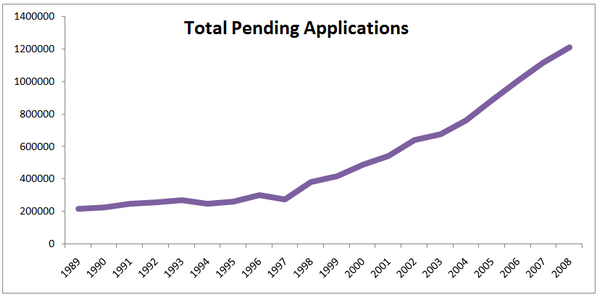Every day, if you are any kind of tech-enabled person, you hear more stories of tech companies suing each other over patents. In the rare instance, the dispute is over an actual ‘invention’, but for the most part, every dispute is over ideas that make any reasonable tech-person say, “How could that have been granted a patent? It’s obvious!”
 The understanding we are given of how patents are supposed to work, is that someone comes up with a new idea, one that isn’t an obvious implication of already existing concepts in use, and registers it to secure some temporary commercial protection for their idea while they develop it, so no one who is bigger and better funded can beat them to market. The reality is far different, however. Whether due to corruption or incompetence in the patent process, massive numbers of patents are granted each year on ‘ideas’ that barely qualify as such.
The understanding we are given of how patents are supposed to work, is that someone comes up with a new idea, one that isn’t an obvious implication of already existing concepts in use, and registers it to secure some temporary commercial protection for their idea while they develop it, so no one who is bigger and better funded can beat them to market. The reality is far different, however. Whether due to corruption or incompetence in the patent process, massive numbers of patents are granted each year on ‘ideas’ that barely qualify as such.
- In an industry that had been universally pursuing a ‘less clicks between the customer and their purchase’ strategy, Amazon was granted a patent for ‘allowing the customer to purchase with one click’. Not some novel back-end process that enabled ‘one-click’ a particular way, mind you, but the entire concept of buying with one click. And it was granted.
- A satellite company was forced to abandon a faulty satellite worth hundreds of millions because Boeing was granted a patent on using lunar flyby orbits to recover satellites. Not a special technology for plotting orbits or a new process for getting a satellite into a particular orbit, but the very idea that if the math *everybody* was using to calculate orbits happened to result in a lunar flyby, and the mission involved salvaging a satellite, you had to pay Boeing a licensing fee!
- Apple, Google, and Samsung are locked in perpetual legal combat to the tune of billions of dollars over a series of trivial patents on things like sliding a your finger on a touch-screen to unlock a phone (as opposed to the hundreds of ways gestures are already used), “performing an action on a structure in computer-generated data” (so, doing any kind of computing, in any way?), etc…
- 3D printers, which are very sensitive to drafts and rapid temperature changes, cannot be sold with enclosed cases that block out drafts, because one large company holds a patent on building enclosures around 3D printers (You know, the obvious solution to any problem involving how to stop a draft!).
A recent study found that patent disputes cost the US economy a net amount of 25.5 billion annually. More importantly, there are huge swathes of the tech industries where small players rarely even bother to try, because they live in constant fear that someone with a stable of trivial patents and lawyers with come out of the woodwork and sue them into bankruptcy.
It’s obvious at this point that the patent system if broken beyond repair, or at least that political and big-business forces will prevent any meaningful changes. I propose a different approach!
What if we founded a non-profit organization whose charge was to allow anyone to register any trivial or overly-broad idea for any technology, and thereby secure ‘anti-patent protection’ for that idea? It would be an easily searchable repository, designed to provide an ironclad “prior art” defense against any patent claim by demonstrating that the ‘idea’ was publicly promoted long before their rotten patent was filed. If widely adopted, it might even succeed in stopping a large number of bad patents from being granted in the first place!
I pose this as an open invitation to all techies. Will you join me in building this organization, and in donating your obvious ideas to the effort?

